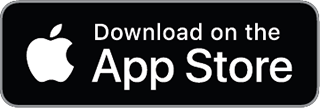Lincoln City surf forecast guide
Lincoln City is a well-known surf spot on the Oregon Coast, featuring a long stretch of beach with various breaks suitable for surfers. The area is mostly beachbreak, meaning that it's primarily sand underfoot, with a few spots where rock comes into play. While Boiler Bay to the south is the standout spot, other areas like Road's End and the Salmon Rivermouth can also deliver fun waves. It's best to get out here during the summer months, though you can hit it in the autumn as well. The beaches are generally clean, and though you might encounter some crowds, especially at Boiler Bay, there are plenty of waves to go around at the other nearby spots.
The surf at Lincoln City varies depending on swell size, typically handling conditions from shoulder height to overhead (about 1.8m to 2.4m). The best swell directions are South, Southwest, and West, and you can expect fun beach breaks that can sometimes get hollow, especially at the longer beach at NW 15th Street. The tides are important here, with low to mid and mid to high tides often being the sweet spot for good waves. Winds from the Northeast to Southeast can provide favorable conditions. It's suitable for surfers of various skill levels, but be mindful that Boiler Bay can get challenging due to its rocky nature.
Access to Lincoln City is pretty straightforward; just take NW 15th Street off Highway 101 for the main beach access. If you're heading to Boiler Bay, you'll want to find the paved wayside parking area in Depoe Bay and hike down the goat trail to reach the surf. While crowds can be an issue at Boiler Bay, especially with shortboarders, you'll likely find more space at the other spots. Remember to watch out for local vibes; some stink-eye might happen, but just keep your cool and respect the lineup.

